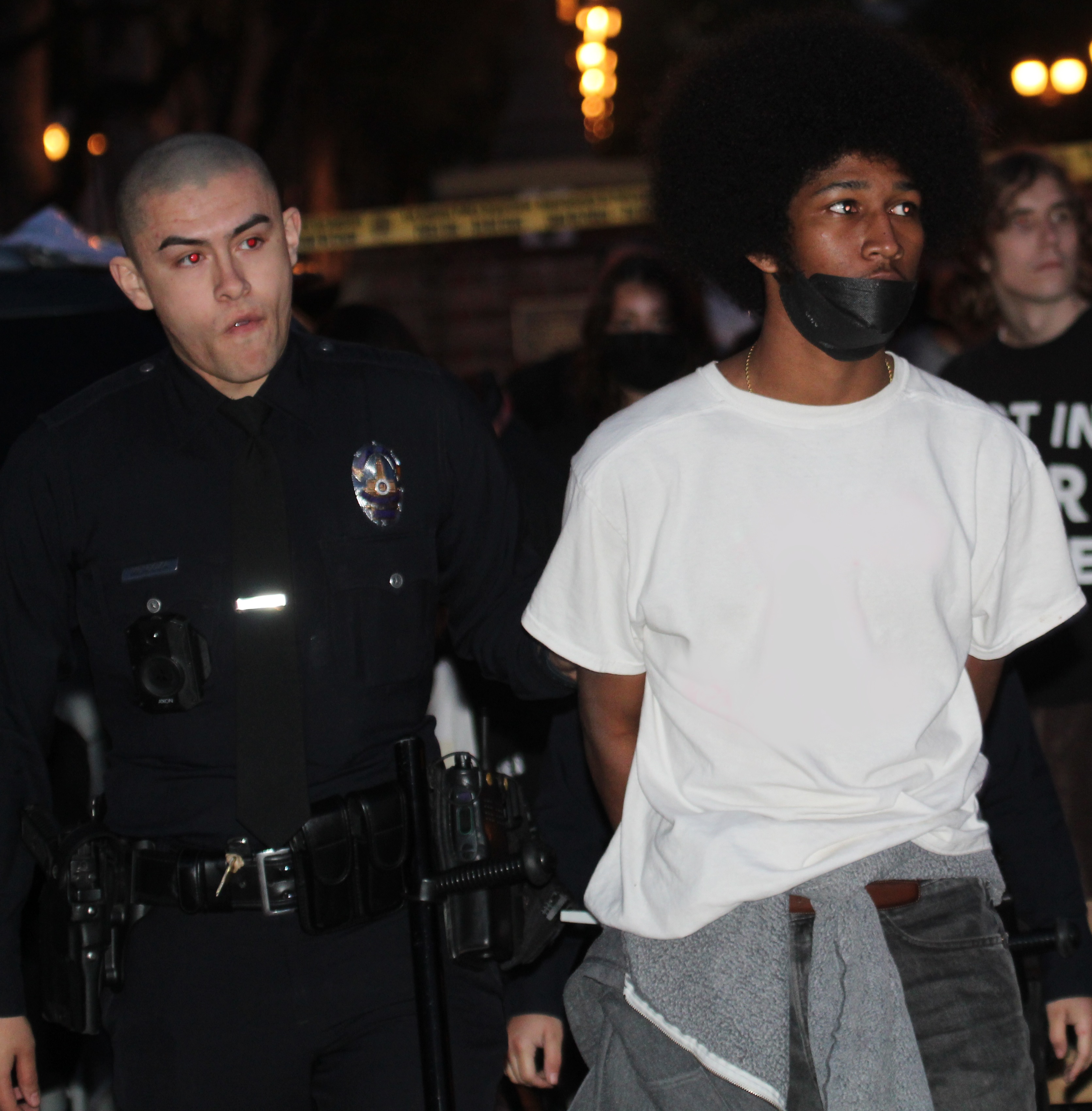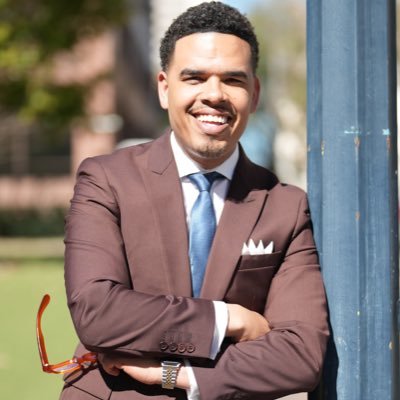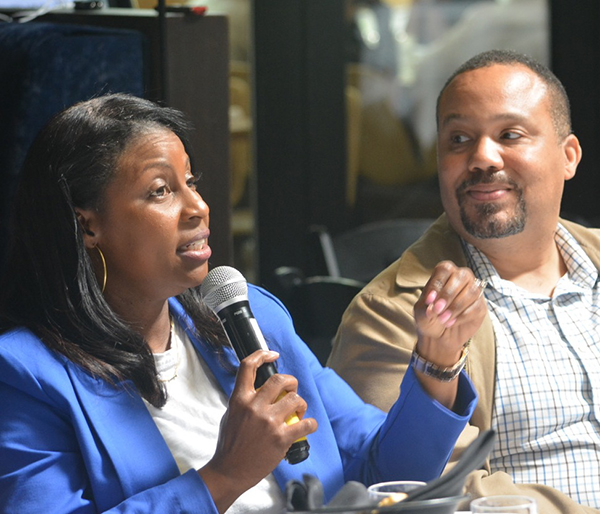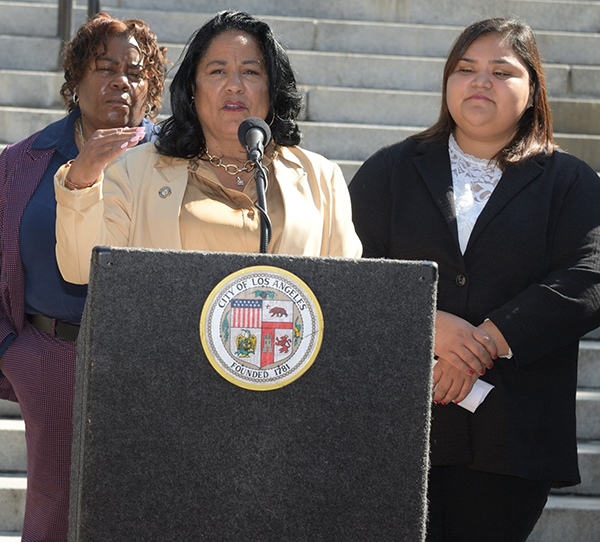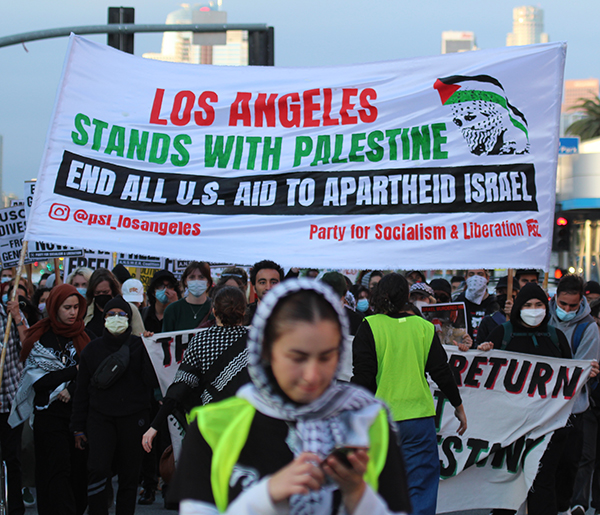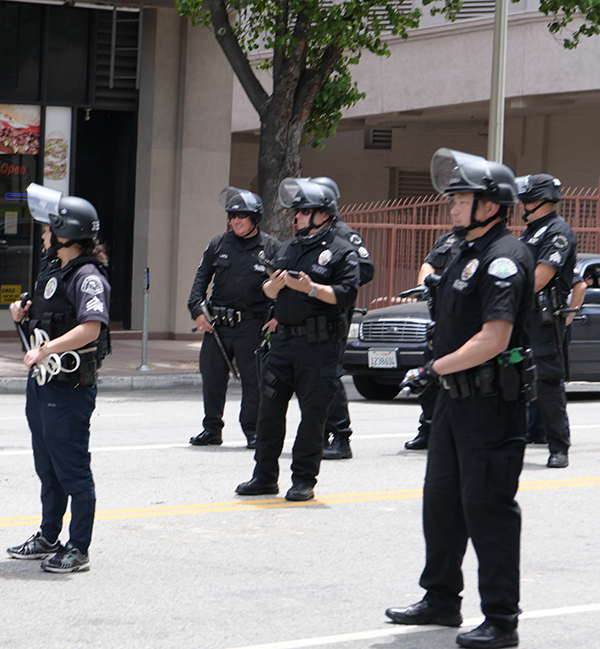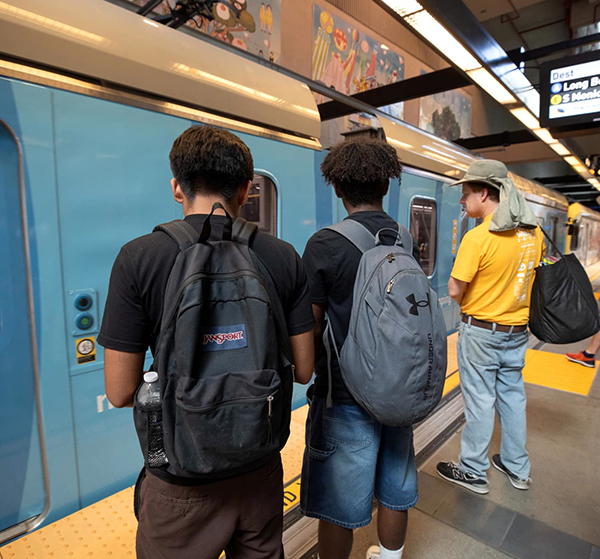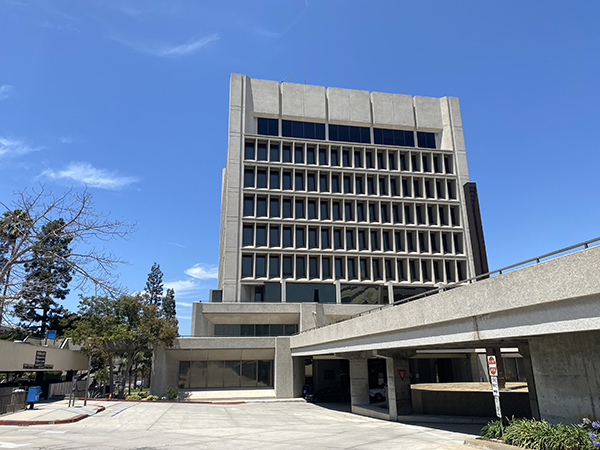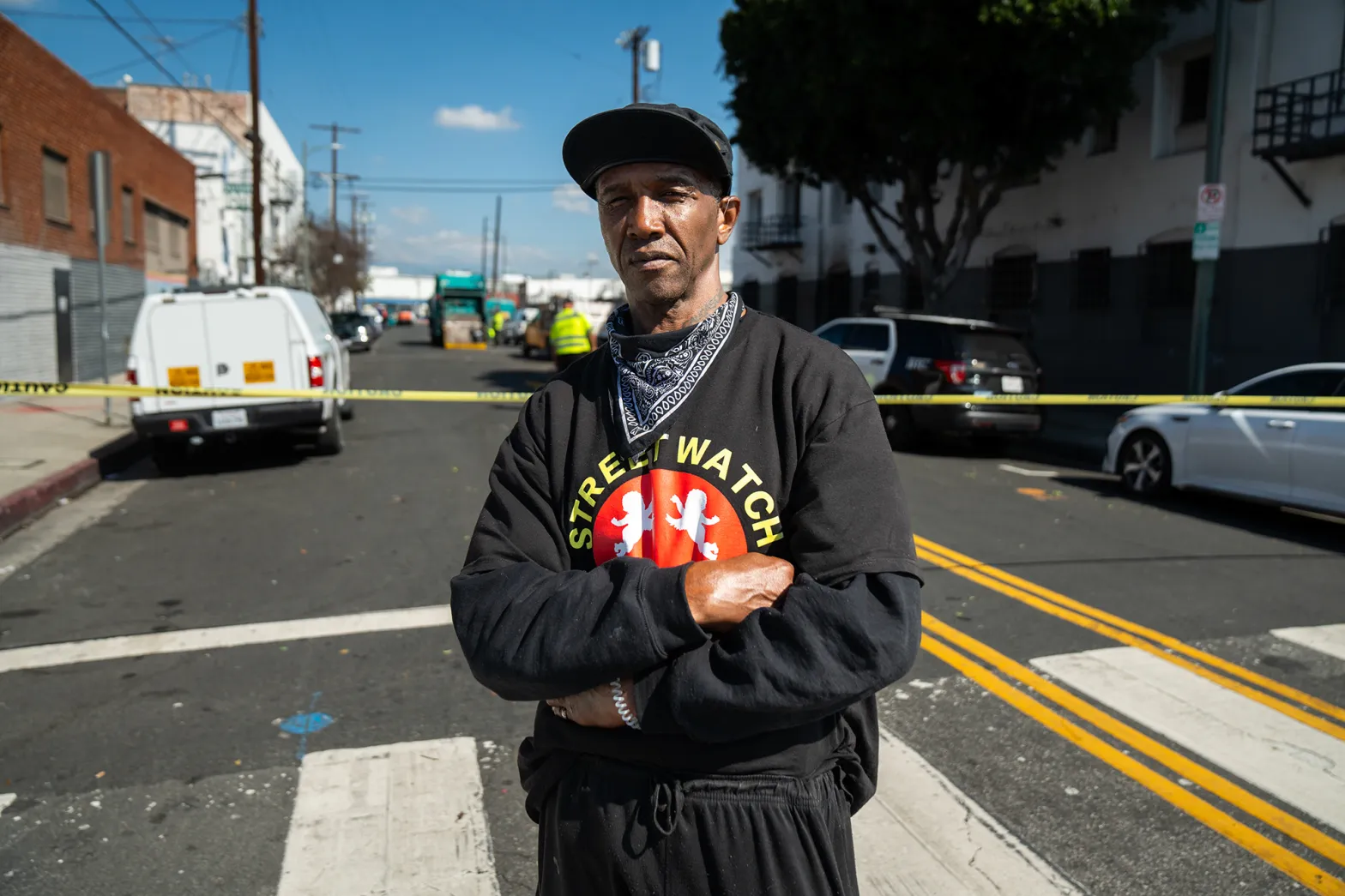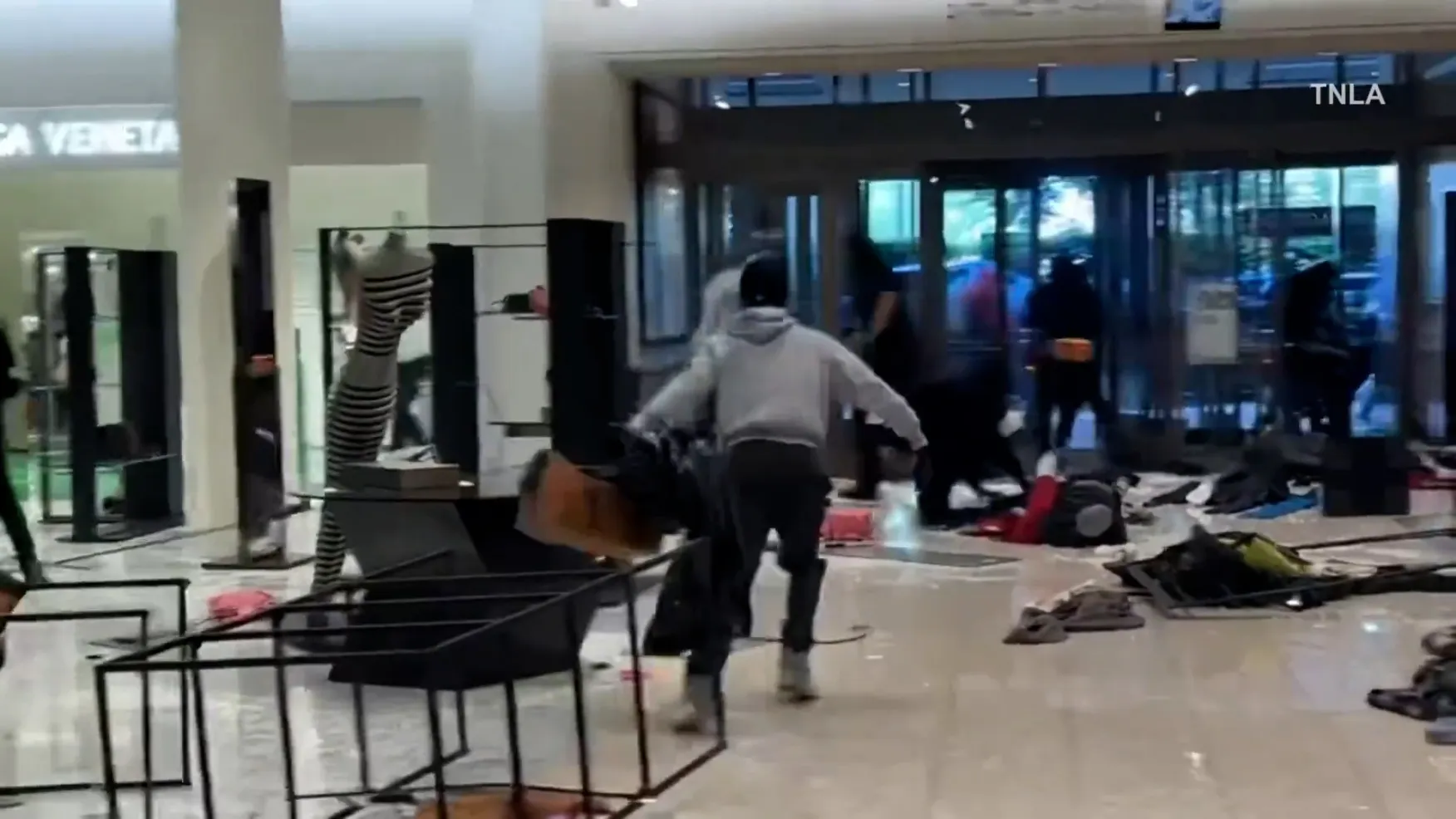Inside the Private Security Forces Patrolling the Homeless
Public agencies are funding private security guards in homeless shelters and on the street, opening a new front in the state’s housing crisis — one ripe for violence and civil rights issues, but thin on oversight.
By Lauren Hepler
Cal Matters
On the first sunny morning after days of tent-thrashing rain on Skid Row, a downtown Los Angeles native and longtime activist known as General Dogon —given name Steve Richardson — is rallying the neighborhood.
Between taking orders for new sleeping bags financed by an online fundraiser, the Los Angeles Community Action Network organizer points out the security guards that dot the streets around him.
Just around the corner was where, three decades earlier, Dogon saw the first of what he called “the red shirts” — uniformed, armed private guards hired by a local tax-funded business group charged with cleaning up downtown. He’s been fighting them ever since.
California’s private security industry has existed for more than a century, but in 1994 state lawmakers granted the business groups — formally known as Business Improvement Districts, or BIDs — a right to spend public money on private security.
Dogon had just gotten back from serving a long prison sentence and was living in a nearby residential hotel when he started to hear stories that turned into class-action lawsuits.
“They was jacking up homeless people, taking their tents, pushing them down the street,” he recalled. “They were so bad, we was getting complaints from drug dealers that they was taking the drug dealers’ stuff.”
Dogon had a front-row seat for court battles in the 1990s and 2000s that added some checks to prevent BIDs and their guards from harassing people and destroying belongings.
But with California now home to a record 181,000 homeless residents, tension on public streets is hitting another high. And when it comes to private security, BIDs were just the beginning.
As California’s homeless population spiked nearly 40% in the past five years, the growth has been accompanied by a boom in private security.
Governments, nonprofits and businesses are increasingly turning to hired guards to triage homelessness, opening a new front in the state’s housing crisis — one ripe for violence and civil rights issues, but thin on accountability and state oversight.
More than a dozen recent legal proceedings and public contract disputes reviewed by CalMatters suggest that, rather than ensuring safety, guards can compound already dangerous and chaotic situations.
Shelter residents in multiple Southern California cities have alleged in lawsuits that they were raped or sexually assaulted by shelter guards, including a Los Angeles case where a guard was sentenced to prison after a homeless woman complained of repeated abuse.
In Sausalito, people living at a publicly funded tent city said in court that contract workers dealt drugs and harassed women.
After a homeless woman in LA was stabbed to death by a fellow shelter resident, her family sued a guard for negligence in an ongoing lawsuit, alleging that he remained at an onsite office despite loud screams during a long attack.
No state agency publicly tracks how many guards work with homeless people, let alone what happens when things go wrong.
The California agency that regulates guards — the Bureau of Security and Investigative Services — denied a CalMatters public records request for complaints and reports of violence involving guards and homeless people.
Several lawsuits, meanwhile, allege that security companies, shelter operators and government regulators have failed to properly train and oversee guards, who in some cases are paid just over minimum wage and struggling to stay housed themselves.
“Private security is a lot cheaper than cops,” said Paul Boden, executive director of activist group the Western Regional Advocacy Project. “And a lot less regulated.”
Around the world, economic researchers have found that private security reliance tends to rise along with income inequality and fear of crime. The industry grew nearly 20% in California from 2010 to 2022, the most recent state data shows, to more than 301,000 licensed guards — a force that outnumbered sworn law enforcement officers roughly 4 to 1.
In recent decades, court rulings have put some limits on local governments’ and police’s ability to clear encampments and interact with homeless people. Private guards are bound by different rules.
The legal complaints against security guards underscore bigger flaws in the state’s approach to homelessness. Guards and other front-line workers often aren’t trained to handle complex social issues. And despite public officials who criticize homeless people for rejecting shelter, some unhoused people say shelters and city-run encampments can be worse than the street.
More political pressure is on the horizon. This spring, the U.S. Supreme Court will rule on whether clearing encampments when there is no shelter available violates the Constitution’s ban on cruel and unusual punishment.
Donald Trump’s presidential campaign includes a plan to “relocate” homeless people from cities, arresting those who refuse and sending others to large tent cities. In California, a bipartisan statewide bill would make it easier to sweep encampments and ticket or move people off the street.
The Bureau of Security and Investigative Services said it has received 20,475 total private security complaints since 2019, but that it has no way to search for how many involved unhoused people.
“The Bureau looks into every complaint it receives, and when determining if a violation has occurred, the Bureau relies on facts and information obtained during the course of an investigation,” the agency said in a statement.
As crackdowns loom, homeless advocates argue that pouring money into stopgaps such as private security and temporary shelters — rather than permanent housing — will breed more problems.
“You put people in power over incredibly vulnerable people who are dependent for their very place to live,” said Minouche Kandel, a staff attorney for American Civil Liberties Union of Southern California. “It’s a setup for abuse of power.”
Wendy Powitzky knows all about that after thinking she’d finally found a way off the street in Orange County.
The former hairdresser had spent years sleeping in her car and parks around Anaheim, near the suburban salons where she used to work. One day a social worker told Powitzky about an old piano shop recently converted into a shelter.
She just had to clear security to reach her new twin bed.
That’s where guards at the taxpayer-funded shelter groped and strip-searched her and several of her neighbors, and left them in constant fear of eviction, according to a lawsuit filed on behalf of eight former Orange County shelter residents.
“It was going to be my saving grace,” Powitzky said of the Anaheim shelter. “It was more unsafe.”
Former shelter residents like Powitzky are the first to note that there can be very real security concerns associated with homelessness. It isn’t easy, she said, for people who have struggled with trauma, constant stress and sometimes addiction or mental illness to live in close quarters with limited privacy.
That’s why she was initially reassured by the uniformed guards at the front door of Anaheim’s La Mesa shelter in 2019.
One night when Powitzky attempted to enter the shelter with her adult son, a guard approached after she cleared the metal detector and told her to put her arms up. The guard proceeded to “rub her hands all over” Powitzky’s breasts, she said in the lawsuit, making her son “uncomfortable watching his mother get touched in this manner.” Powitzky didn’t complain for fear of eviction.
Later that same month, Powitzky said another shelter guard forced her to expose her breasts in front of male guards and other residents. More invasive searches where guards “inappropriately rubbed” her body followed, she said in the lawsuit, even after she did complain.
“I honestly just felt like they wanted to get people out of there — ‘You’re going to do what we want, or you’re going to get out of here,’” Powitzky told CalMatters. “It’s a horrible way to run a situation for people that are already having problems with their life.”
In addition to the searches, Powitzky said in the lawsuit that it was impossible to work her way out of the shelter; she lost two jobs due to scheduling issues with a strict curfew. She left in early 2020 when COVID hit, not wanting to get stuck inside with shelter staff and guards who, the lawsuit alleged, appeared to lack appropriate training.
“I’m still in limbo. I sleep in my car at night,” Powitsky said in the interview. “I will never go to a shelter again.”
In addition to the searches, Powitzky said in the lawsuit that it was impossible to work her way out of the shelter; she lost two jobs due to scheduling issues with a strict curfew. She left in early 2020 when COVID hit, not wanting to get stuck inside with shelter staff and guards who, the lawsuit alleged, appeared to lack appropriate training.
“I’m still in limbo. I sleep in my car at night,” said Powitsky. “I will never go to a shelter again.”
Lauren Hepler is an investigative reporter for CalMatters, where she has covered issues including breakdowns in pandemic unemployment programs and shifting state demographics. Lauren was previously a staff housing reporter for the San Francisco Chronicle. She holds a master’s degree from UC Berkeley’s Graduate School of Journalism. She can be reached at lauren@calmatters.org
CalMatters.org is a nonprofit, nonpartisan media venture explaining California policies and politics. Published with permission of CalMatters.

